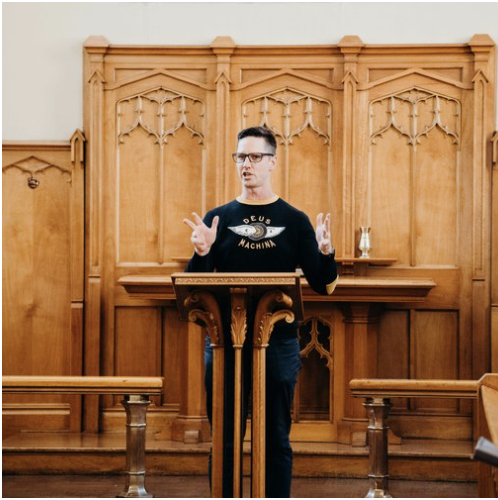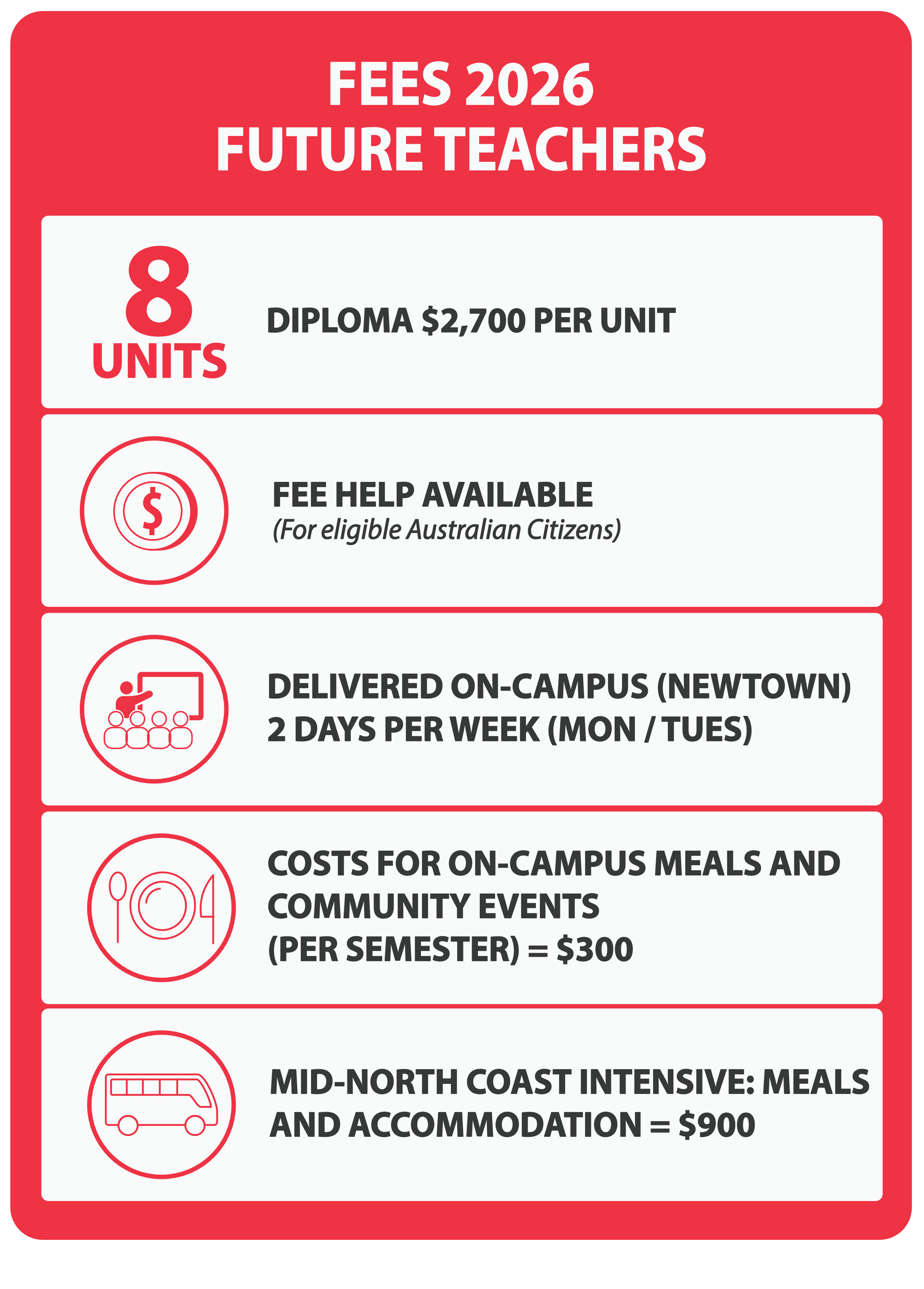
FUTURE TEACHERS
For those who want the best gospel preparation before gaining a teaching qualification through an approved teacher education course.
The AUT Coursework Course Enrolment Policy and other important AUT policies for prospective students are located here.
An 8 unit Diploma of Theology completed in one calendar year. Learning 2 days (Mon-Tues) on campus in Newtown, Sydney, and up to 3 days paid practical experience in a school.
Requires a work placement in a school
Either, as an intern (SLSO) in a private school
Or, as an SLSO in a public school (with SLSO qualification)
Or, as a casual teacher (for qualified teachers)




Course Structure
Each unit in the Diploma of Theology for Christian teachers enriches the understanding of the Christian faith with biblical studies, theological studies, and the application of the gospel to contemporary issues in the teaching profession.
AUT units offered:
TH008-512 – “The Doctrine of God and the Person and Work of Christ”
TH009-512 – “The Holy Spirit, Grace, Church and Hope”
NT002-512 – “The Early New Testament Church”
OT001-512 – “Old Testament Foundations”
PE001-512 – “Christian Ethics”
DE019-512 – “Sexuality & Identity”
PC076-512i – “Personal and Spiritual Formation for Christian Ministry”
Or DE053-512 - “Children and Young People with Disability and Neurodivergence”
DE045-512 – “Formative Christian Teaching”
Benefits:
Provides a solid theological foundation for FUTURE TEACHERS to address and respond to challenges in Christian educational settings.
Provides some teaching experience BEFORE students begin their university education degree using an apprenticeship in schools model.
Prospective teachers learn to think theologically BEFORE engaging in university education. Gaining a robust theological foundation BEFORE going to a secular university for an education degree means prospective teachers are able to actively engage with secular ideas in university from a Christian perspective. This provides the best preparation for Christian teachers to engage with these ideas as they arise from families and students in the school setting. It avoids a cloistered Christian institutionalism that retreats from the world.
Youthworks College is an Affiliated College of the Australian University of Theology (AUT). The tuition fees are set by ACT on an annual basis. More information about tuition fees is available here.
Investment for students:
$2,700.00 per unit. FEE-Help available to eligible Australian citizens for all units.
Investment for schools:
It’s up to each individual school what they pay their interns. However, students working as Teachers Aides (SLSO) should be paid according to the award.
Admission Criteria
Youthworks College welcomes students from all denominations who have a personal faith in Jesus Christ and are active church members. Applicants should understand that as an organisation of the Anglican Diocese of Sydney, Youthworks College operates under the Diocesan Statement of Faith.
Youthworks College expects all staff and students to adhere to the national code of conduct, Faithfulness in Service and the Youthworks College Code of Conduct.
All students over 18 years will require a Working with Children Check (WWCC). This check will give you a WWCC number which should be provided to college@youthworks.net for verification. To apply for your WWCC visit the NSW Kids Guardian. This requirement also applies to all online students residing in NSW.
Youthworks College is committed to the safety, welfare and wellbeing of children, therefore you are also required to complete the Safe Ministry training package prepared by the Sydney Anglican Diocese (or equivalent training endorsed by the NCCA's Safe Church Program).
Example Week for CCE Student
FAQs
How is this a different program from what is offered by other Christian higher-ed institutions?
The CCE doesn’t offer an educational degree in teaching. Rather, the CCE focuses on providing theological education for Christian teachers. There are many longstanding expert degrees in education already at secular universities with excellent reputations and career advantages. The CCE is value-adding the specific theological education for gospel expertise that Christian teachers need in contemporary Western society.
What’s the advantage over Christian teachers who do all their educational qualifications through a Christian institution?
Doing the CCE BEFORE an educational degree at a secular university is an advantage because these universities are presenting the kinds of ideas that shape families and students of schools in contemporary society. The formation of excellent Christian teachers with gospel expertise begins by gaining strong theological foundations in order to engage properly with the secular ideas presented at university. Christian teachers that have theologically wrestled with these ideas at university will gain the gospel expertise needed to engage with these very same ideas in a school context, and be able to present a compelling vision of the good news of Jesus.
Why should I add one more year of study to my teaching degree?
Teachers are already the busy enough as it is trying to keep on top of classroom management, compliance, and whole school duties, not to mention the number one priority of engaging and teaching their students! The reality is that if teachers don’t spend time developing a theology of teaching and how the gospel of Jesus impacts the formation of their students BEFORE they begin teaching most teachers will never do it. We want Christian teachers who are not just excellent at teaching their subjects, but are also gospel sharp as they think critically and theologically in their classrooms.
What is a student expected to do as part of their school placement?
The flexibility of the CCE school placement means that each school is able to tailor the school experiences for and opportunities for their student and their context. At minimum, we suggest that a CCE student regularly participates in observing and supporting a teacher in set classes throughout the year. Find your school placement here.
Can we use this if we have our own school internship program?
Yes, absolutely! The FUTURE TEACHERS option is perfect for existing school internship programs because it adds accredited theological study to the internship experience. Keeping theological study to 2 days each week means the hours dedicated to school placement can be fixed in place for the other 1 - 3 days.
Our school would like to have CCE students. How do we participate in this program?
1. Budget for a CCE student to work in your school up to 3 days per week as an SLSO, or conditional teacher.
2. Identify students from your school who should do the CCE pathway at your school or contact us to see if there are CCE students looking for school placements.
3. Contact us through the enquiry form and we’ll help you finalise the arrangements. story online can make all the difference.




